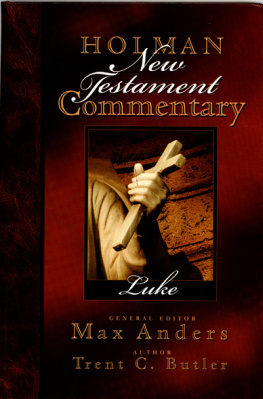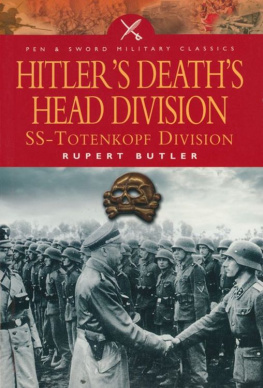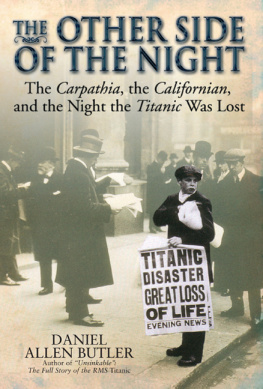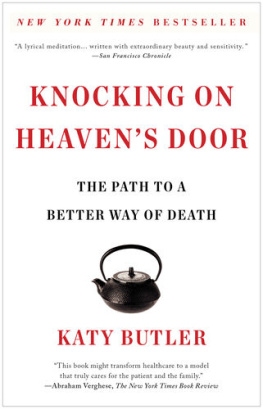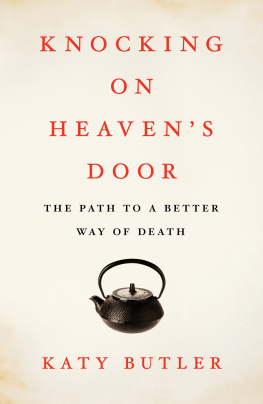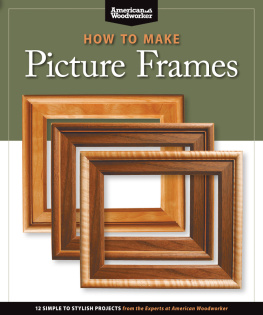Butler - Frames of war: when is life grievable?
Here you can read online Butler - Frames of war: when is life grievable? full text of the book (entire story) in english for free. Download pdf and epub, get meaning, cover and reviews about this ebook. City: London, year: 2016, publisher: Penguin Random House LLC (Publisher Services);Verso, genre: Politics. Description of the work, (preface) as well as reviews are available. Best literature library LitArk.com created for fans of good reading and offers a wide selection of genres:
Romance novel
Science fiction
Adventure
Detective
Science
History
Home and family
Prose
Art
Politics
Computer
Non-fiction
Religion
Business
Children
Humor
Choose a favorite category and find really read worthwhile books. Enjoy immersion in the world of imagination, feel the emotions of the characters or learn something new for yourself, make an fascinating discovery.
Frames of war: when is life grievable?: summary, description and annotation
We offer to read an annotation, description, summary or preface (depends on what the author of the book "Frames of war: when is life grievable?" wrote himself). If you haven't found the necessary information about the book — write in the comments, we will try to find it.
Frames of war: when is life grievable? — read online for free the complete book (whole text) full work
Below is the text of the book, divided by pages. System saving the place of the last page read, allows you to conveniently read the book "Frames of war: when is life grievable?" online for free, without having to search again every time where you left off. Put a bookmark, and you can go to the page where you finished reading at any time.
Font size:
Interval:
Bookmark:

JUDITH BUTLER is Maxine Elliot Professor of Rhetoric and Comparative Literature at the University of California, Berkeley. She is the author of many books, including Giving an Account of Oneself, Precarious Life, and Gender Trouble.
JUDITH BUTLER

This edition published by Verso 2016
First published in paperback by Verso 2010
First published by Verso 2009
Judith Butler 2009, 2010, 2016
All rights reserved
The moral rights of the author have been asserted
1 3 5 7 9 10 8 6 4 2
Verso
UK: 6 Meard Street, London W1F 0EG
US: 20 Jay Street, Suite 1010, Brooklyn, NY 11201
www.versobooks.com
Verso is the imprint of New Left Books
ISBN-13: 978-1-78478-247-4 (PB)
eISBN-13: 978-1-78478-249-8 (US)
eISBN-13: 978-1-78478-248-1 (UK)
British Library Cataloguing in Publication Data
A catalogue record for this book is available from the British Library
Library of Congress Cataloging-in-Publication Data
A catalog record for this book is available from the Library of Congress
Typeset by Hewer Text UK Ltd, Edinburgh
Printed in the US by Maple Press
These essays were written and revised between 2004 and 2008. Although some of them have appeared in earlier forms, they have been substantially revised for the purposes of this book. An earlier version of Paris for the cole Normale Suprieure and the cole des hautes tudes in the spring of 2008.
I am grateful for discussions I have had with several interlocutors over these last years which informed and changed my thinking: Frances Bartkowski, tienne Balibar, Jay Bernstein, Wendy Brown, Yoon Sook Cha, Alexandra Chasin, Tom Dumm, Samera Esmeir, Michel Feher, Eric Fassin, Faye Ginsburg, Jody Greene, Amy Huber, Nacira Gunif-Souilamas, Shannon Jackson, Fiona Jenkins, Linda Hentschel, Saba Mahmood, Paola Marrati, Mandy Merck, Catherine Mills, Ramona Naddaff, Denise Riley, Leticia Sabsay, Gayle Salamon, Kim Sang Ong-Van-Cung, Joan W. Scott, Kaja Silverman, and Linda Williams. I am grateful for the Humanities Research Fellowship at the University of California at Berkeley and Dean Janet Broughton who provided me with the support required to finish this text. I thank Colleen Pearl and Jill Stauffer for their editorial work on the manuscript (though all errors are emphatically mine). I thank Tom Penn at Verso for encouraging and editing the project. The text is dedicated to my students who have moved and changed my thinking.
This manuscript was completed a month after the election of Barack Obama to the US presidency, and we have yet to see what concrete ameliorations of war may take place under his administration. In a way, the occasions for these essays emerged from the wars instigated by the Bush administration, but I am clear that the reflections contained herein are not limited to the vagaries of that regime. The critique of war emerges from the occasions of war, but its aim is to rethink the complex and fragile character of the social bond and to consider what conditions might make violence less possible, lives more equally grievable, and, hence, more livable.
This volume gathers a set of essays that return in different ways to common themes. There is no single argument here, but rather a series of forays into thinking about the ways in which visual and discursive fields are part of war recruitment and war waging. The point is not merely descriptive, but critical and oppositional. After all, there are conditions under which war is waged, and we have to know them if we are to oppose war. Indeed, the opposition to war has to take place, in part, through remaking the conditions of its possibility and probability. Similarly, if war is to be opposed, we have to understand how popular assent to war is cultivated and maintained, in other words, how war waging acts upon the senses so that war is thought to be an inevitability, something good, or even a source of moral satisfaction.
Any effort to understand must consider how wars are waged and the technology of war, but to understand the operation of technology we have to consider how it works on the field of the senses. What is formed and framed through the technological grasp and circulation of the visual and discursive dimensions of war? This grasping and circulation is already an interpretive maneuver, a way of giving an account of whose life is a life, and whose life is effectively transformed into an instrument, a target, or a number, or is effaced with only a trace remaining or none at all. Although no final or exhaustive account of war waging is undertaken in these pages, some suggestions are made about what form such an account might take. Such a task requires that we rethink the received terms of materialism in order to understand, for instance, how cameras work as instruments of war, how they both frame and form the human and non-human target along with a field of collateral damage (equally necessary to war, even if perpetually part of peripheral vision), and to develop an anti-war politics that focuses on the dispossessed and those rendered precarious in ways that require new vocabularies and new practices.
When we think about how wars are waged, what forms war waging takes, we tend to think first about the material instruments of war, assuming that we know what we mean by material instruments when we speak this way. Even if we agree that cameras are among the material instruments of war, it remains understandably difficult to say that the cameras themselves wage war, or even that they are part of war waging. Surely, common sense tells us that persons wage war, not the instruments they employ. But what happens if the instruments acquire their own agency, such that persons become extensions of those instruments? The populations targeted can be cast as instruments of war, as happened most recently in the effort to justify civilian deaths caused by the Israeli army in Gaza. Similarly, the soldier can be treated as an extension of the instrument he carries, when the soldier is considered one with the weapon he bears, but so too can the camera sometimes appear to be co-extensive with the cameras use. When cast as a mere instrument of aggressive military power, a threat to civilization, or as a potentially unmanageable demographic problem, populations are framed by the tactics of war, and living humans become cast as instruments, blockades, targets and shields. Similarly, very often the one who uses the camera is positioned within the perspective of battle, and becomes a soldier-reporter who visually consecrates the destructive acts of war. As a result, we have to pose the question of the material of war waging, what counts as material, and whether cameras and their images are part of that extended materiality.
Although we reserve some sense of materiality for the image, we tend to give priority to that materiality that belongs to guns, bombs, and the directly destructive instruments of war without realizing that they cannot operate without the image. In a way, that focusing on the target produces a position for the soldier, the reporter, and the public audience, structuring the visual field that makes each position possible. The frame not only orchestrates such positions, but also delimits the visual field itself. In the context of war photography, the image may reflect or document a war; at times it may rally emotional responses either in support of the war effort or in resistance to it. Other times the image becomes a dense site of political ambivalence about the war itself. So can we say that the image itself is really part of the waging of war? Cameras are literally appended to missiles and bombing devices, sometimes replacing human agencyas with the pilot-less drones whose destructiveness in the war in Afghanistan cannot be doubted. Indeed, the camera-bomber that is the drone has produced many civilian casualties, since its aim is imprecise and its destructive power always disproportionate to its target.
Font size:
Interval:
Bookmark:
Similar books «Frames of war: when is life grievable?»
Look at similar books to Frames of war: when is life grievable?. We have selected literature similar in name and meaning in the hope of providing readers with more options to find new, interesting, not yet read works.
Discussion, reviews of the book Frames of war: when is life grievable? and just readers' own opinions. Leave your comments, write what you think about the work, its meaning or the main characters. Specify what exactly you liked and what you didn't like, and why you think so.


